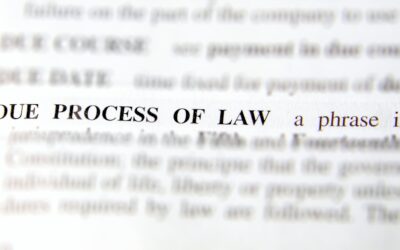To Self-Disclose or Not to Self-Disclose! | medicaidlaw-nc (medicaidlawnc.com)
Healthcare attorney Knicole Emanuel has posted a blog about “self disclosure,” the process that occurs when a hospital, facility or practitioner identifies Medicare overpayments and reports them. The False Claims Act (FCA) requires healthcare practitioners to report overpayments from Medicare if they identify them. Ms. Emanuel emphasizes that despite the pain of self-disclosure and paying back money, it’s still better to do it than wait to get caught.
You should read her article, but she explains that self-disclosure might avoid:
- Civil Monetary Penalties (CMPs) which can reach up to $23,000 per false claim or an amount up to three times the amount of damages suffered by the government.
- False Claims Act (FCA) Violations which can result in penalties ranging from $12,537 to $25,074 per false claim, plus treble damages (three times the amount of damages sustained by the government).
- Criminal Penalties which can be imposed for knowingly and willfully submitting false claims, with penalties including fines up to $25,000 and imprisonment for up to five years.
- Exclusion from Federal Programs in which providers found guilty of fraudulent activities may be excluded from participating in Medicare, Medicaid, and other federal health programs. Self-disclosure and cooperative resolution can sometimes prevent or mitigate the severity of exclusion actions.
One specific area of concern relevant to wound care are physicians is reporting the wrong site of service on professional claims. Physicians who work in a hospital based wound center (HOPD) but submit professional claims with the wrong site of care — effectively telling Medicare that they are seeing patients in their office — are likely being overpaid for debridement and many other services. Although the physician payment for hyperbaric oxygen is the same regardless of the site of care, if the doctor is reporting the wrong site of care for HBOT charges, they are probably reporting the wrong site of care for other charges. Follow the instructions in this post to check your own data. The amount by which they are being overpaid could be huge if it has gone on several years. I know a physician who self-disclosed when he realized his biller (whom he trusted) had simply submitted his claims incorrectly. He had to borrow money to pay back the overpayment, and it took him several years to recover financially. I was foolish enough to call a couple of physician friends when I saw that the Medicare open payments data showed they were submitting the wrong site of care. Instead of being grateful, they both were furious at me. There are quite a number of physicians with potential “site of service” problems based on the Open Payments website, but I have learned my lesson and they won’t hear about it from me!
A bigger issue right now has to do with CTPs/skin substitutes. Sending false invoices to Medicare is definitely a problem. However, pocketing the money from deep discounts in product costs below the average sales price (ASP) might be considered a kickback. At least two nurse practitioners have been charged by the Department of Justice (DOJ) for this. This area is under considerable scrutiny right now, and more indictments are likely to occur. Self-disclosure is better than waiting to get caught. Lives can be ruined if you wait to get caught.





